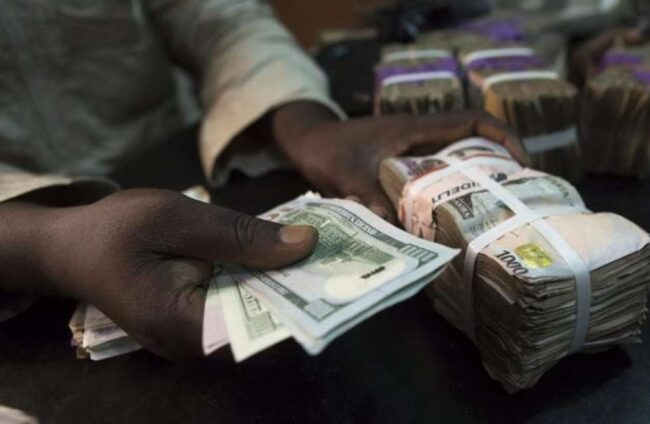The policy of treasury single account (TSA) has its merit of streamlining the process of remittance of revenue generated by various agencies and letting government know at a glance what it has in its account. This looks like a novel idea in an environment in which corruption is prevalent and every loophole for revenue leakages needs to be blocked. The only issue arising from this policy decision is that the change of residence of government funds – the withdrawal of government related deposits from banks.
A matter of concern is the radical nature of policymaking in Nigeria that allows issues that need serious studies and deep considerations to be addressed with trial and error solutions. When it has to do with banking business, it is a matter of serious concerns because the impact of the policy that affects banks will be distributed with a greater force to all the corners of the economic society.
Today, the single treasury account policy is presented as an innovative solution to the revenue challenges facing government. The applause can be appreciated in the light of the massive plundering of government funds that has happened in recent years. Again, the Central Bank expects that the new policy will make liquidity controls more effective when banks can no longer do any business with government related funds.
This is indeed the problem, a big one at that being dropped at the door steps of banks. We seem to be clear about what the policy will accomplish for government and the challenges it will pose for banks but no one is telling us what options banks and other stakeholders in the financial markets and the economy have to deal with this challenge without hurting the entire system.
Advertisement
In well governed economies, policies of the magnitude of a single treasury account is studied over a long period of time to understand the benefits, the immediate ripple effects in the system and the medium- to long-term implications for the economy as a whole. This approach ensures a balanced assessment of the desirability of a policy option, examines the suitability of the environment in which the policy is to be introduced and sets in motion other supportive actions to deal with unintended effects of a policy decision.
Nigeria’s economy is presently at a stage in which a lot of stimulatory spending needs to happen to stimulate both the production and consumption functions. The financial markets have not been able to resume delivery of adequate credit and capital to business and industry since the financial crisis in 2008. Interest rates are held high by the Central Bank in order to attract foreign financial capital and keep pressure off the local currency.
High interest expenses are hurting both banks and businesses and access to credit is closed to small-scale businesses and individual operators. Foreign investors for which interest rates are held high are shutting down due to foreign exchange remittance restrictions. Could somebody please tell us how the single treasury account being dropped like an explosive would help diffuse the tension that is building up in the economy?
Advertisement
I see this policy hurting the banking sector and the economy so much that a policy reversal would again become imperative. Before the reversal is eventually made, so much damage would have been done to the system. Banks would have thrown half of their workforce to the streets. The inter-bank market would have become a goldmine where selling liquidity will be more profitable than any other business in the whole world.
Why should any bank keep its staff if it can sell money at 100% by pressing electronic buttons? It will make a lot of sense then to liquidate loans to customers, sack all retail credit officers, shut down branches and concentrate on money market trading in one room in the head office.
What will be the health status of banks in such a frenzied market when liquidity is shut out is a question that needs satisfactory assurances to the public if we are to head off a run from banks in the months ahead. How many banks will be able to stand in the heat of liquidity shortage in the inter-bank market and how many could become distressed? The problem is that a run, if it is allowed to start in one bank, will spread to all because banks have been more closely linked in the post consolidated operations than they were before 2007.
Can the economy stand another round of interest rate hike from what already is about the highest interest rates in the world? It is easy to command a policy into effect than to manage the consequences and that is what is likely to happen in respect of the single treasury account. This policy is set to silence the few remaining production engines in the industrial sector and match everybody forward to money market trading. It will infect the system with lethal financial anemia and those who have money to sell can begin to prepare for a big harvest.
Advertisement
5 comments






My worry has always been that economics is certainly not Buhari’s strong point. Now deciding to issue economic decrees without the visible advise of capable people around him is a recipe for chaos.
Jonathan proposed the TSA since February but lacked the wherewithal to enforce it.
short sighted or dishonest argument. The only long term consequence of TSA enforcement is transparency. We get to see where government funds truly are and where they go and we get to see what truly goes on in the banking industry. If the banks worked honestly with the MDAs then there should be no fear because these monies will not remain in the CBN forever or evaporate into thin air. rather they will be spent into the real sector as recurrent or capital expenditure which ultimately ends up in the banking system. The high money market rates are temporary and will expose badly run banks only.
Reviewing the Buhari STA policy from a narrow economic perspective could mean a doom outcome which is necessarily not the case. However, a review from the perspective of a broader economic analytic could signal very bright socio-economic opportunities for Nigeria.
Control, flow, usage and benefits are critical in sustainable economic development.
First and foremost, the money we are all talking about is not lost, it is still within our reach in Nigeria.
Given our economic antecedents, corruptions and the Nigerian peculiarities, the Buhari STA stance is a beautiful policy.
The past MDAs treasury management system is fraught with very complex financial accounting reconciliations and reporting that always result in continuum of unbalanced statements – CBN balances never reconciles with MDAs balances, just as was dramatized during Sanusi (former CBN governor), NNPC and Ministry of finance.
Moreover, there is no limit to the rein of multi-dimensional frauds. Frauds from shortchanging the amount deposited into the bank as proceeds, to fraud from undercutting bank interests / rates received, and diversions of withdrawals. The disadvantages are enormous and inexhaustible.
The perceived disadvantages of the STA policy are simply perceptual which can be so easily diffused; while the numerous advantages cannot be overemphasized.
The followings are some of the ways to diffuse the perceived disadvantages.
Like I said earlier, the money is not lost; it is with the CBN which is a lender of last resort. Just like in the past system where all the banks get these monies from the MDAs at a cost (i.e. interests on customer deposits); in the same vein, the banks can also get back these monies from the CBN at a cost (i.e. CBN interest rate) instead of the other way round which was prevalent in the past system.
The government just need to ensure that CBN interest rate is not higher than customer deposit interest rate.
Whether the money is sourced from MDAs or CBN, the most important thing is that deposit money banks ( DMBs ) can access them.
Moreover, the monetary policy instrument of CBN can become more effective under STA because, when DMBs collect money from CBN for loans to businesses, CBN can specifically instruct DMBs on how to issue these loans using its credit control policy so as to achieve the macroeconomic policies of government.
For instance, CBN can specifically instruct DMBs to give certain percentages of the loans to agriculture, manufacturing, SMEs, technology, infrastructure, etc. Hence,
Nigeria would enjoy maximum monetary policy prudence. Again, the monies would
get to the grassroots and not crowded out by multinationals and government
bodies.
Thus, most of the people currently employed in the various banks in Nigeria would prefer to leave their paid employments, collect loans from the banks, and start their own businesses. Therefore, creating employments and deploying their vast experiences they had acquired while in paid employment.
Aside from the government treasury sanctity that would be achieved as a result of this STA policy, the Nigerian economy would experience enormous multiplier effects.
Interestingly, CBN can also make these monies available to banks through quantitative easing, that is, in a worst case scenario.
Therefore, the assertion that the Buhari’s STA policy is ill conceived is very mistaken. Rather the policy would ultimately establish the right economic foundation on which the evolving national socio-political and economic development can become sustainable if well implemented.
I am much more concerned about the faith of the small business owner who will definitely be in need of little capital for proper running of their businesses. Withdrawal of ministries fund from commercial banks will definitely place a high price on the little available for public to barrow from thereby removing these petty business owners from those who can access commercial banks for loan. This will definitely lead death of many small scale Enterprises and skyrocket unemployment if there is no alternative of which I believe government had never been able to provide for. The local businesses are at risk with this plan in operation.